
-
Keep Your Engine Tuned
Tuning your engine is one of the best ways to improve fuel efficiency. A well-maintained engine runs more effectively compared to an engine which is not tuned properly. Which means it consumes less fuel to run the same distance. Regular tune-ups can help identify and fix problems like misfiring spark plugs, dirty air filters, or faulty oxygen sensors. All of these problems can cause our engine to burn more fuel then necessary.
When your engine is operating smoothly it does not have to work hard, which reduces fuel consumption. Simple maintenance like changing engine oil, replacing old filters and checking the spark plugs can make a huge difference in how efficiently your car is running. A tune and proper functioning engine also improve overall performance. It provides you better acceleration and smoother rides while driving. Additionally, it ensures that all the critical parts of your car’s engine are in good condition. Regular engine care not only saves fuel but also extends the life of your vehicle, making it a win-win situation for both your wallet and your vehicle.
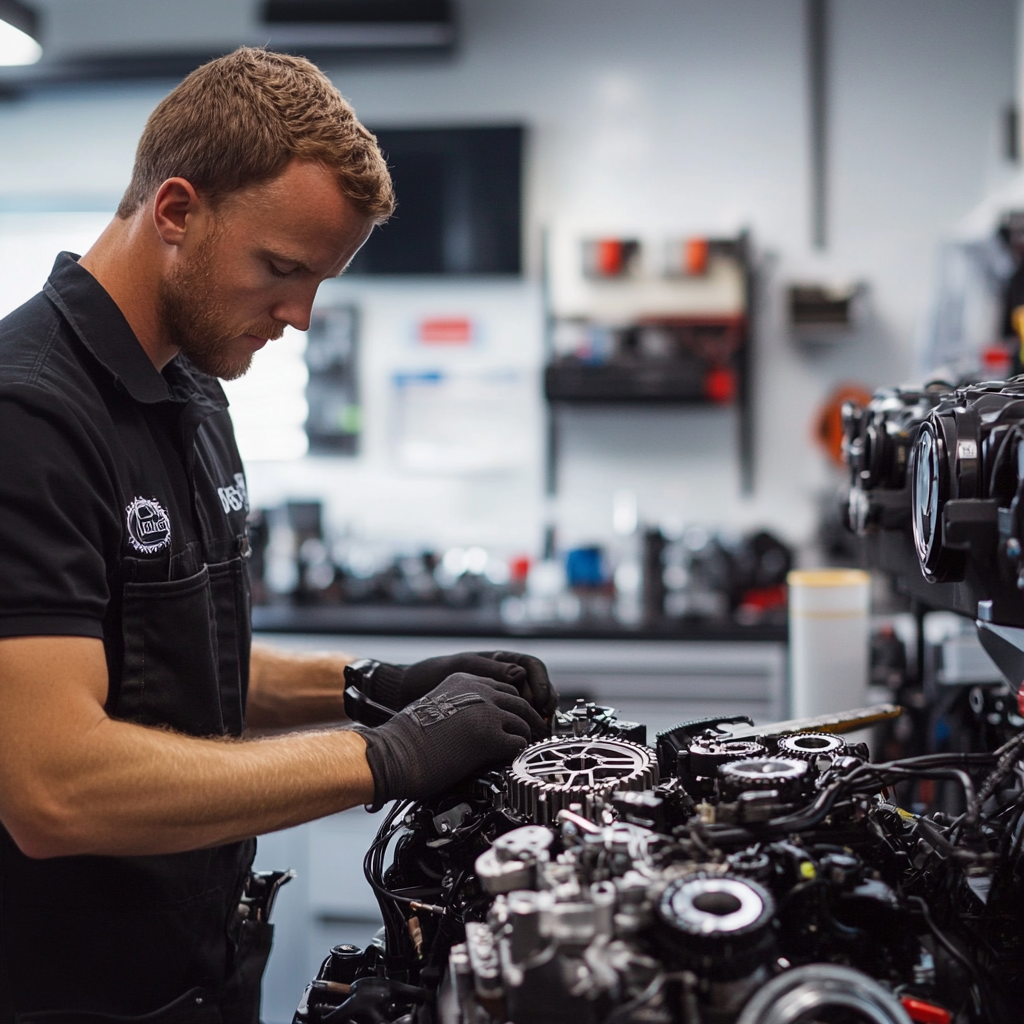
-
Check Tire Alignment and Balance
Maintaining proper tire alignment and balance also play a vital role in improving fuel efficiency. When your tires are balanced, they roll evenly on the road. This reduces resistance, meaning your engine doesn’t have to work as hard to move the car forward. As a result, cars engine consumes less fuel to produce power. Which helps you to obtain more mileage.
On the other hand, misaligned and imbalanced tires can cause uneven wear. Which always pull your car to one direction and makes it harder to steer. This puts extra load and strain on your car’s engine, which leads to increased fuel consumption. Even if it seems small but it can still have a noticeable impact on fuel consumption in long term. And imbalanced tires make’s your car vibrate at higher speeds, which affects how efficiently the tires make contact with the road. This misalignment and imbalance also shortens the lifespan of your tires.
By doing regular checking to this factors you can ensure that your car operates smoothly and efficiently. Which not only improve mileage but also helps you to prevent costly repairs in the future. Proper alignment and balance keep your vehicle running at it’s best.
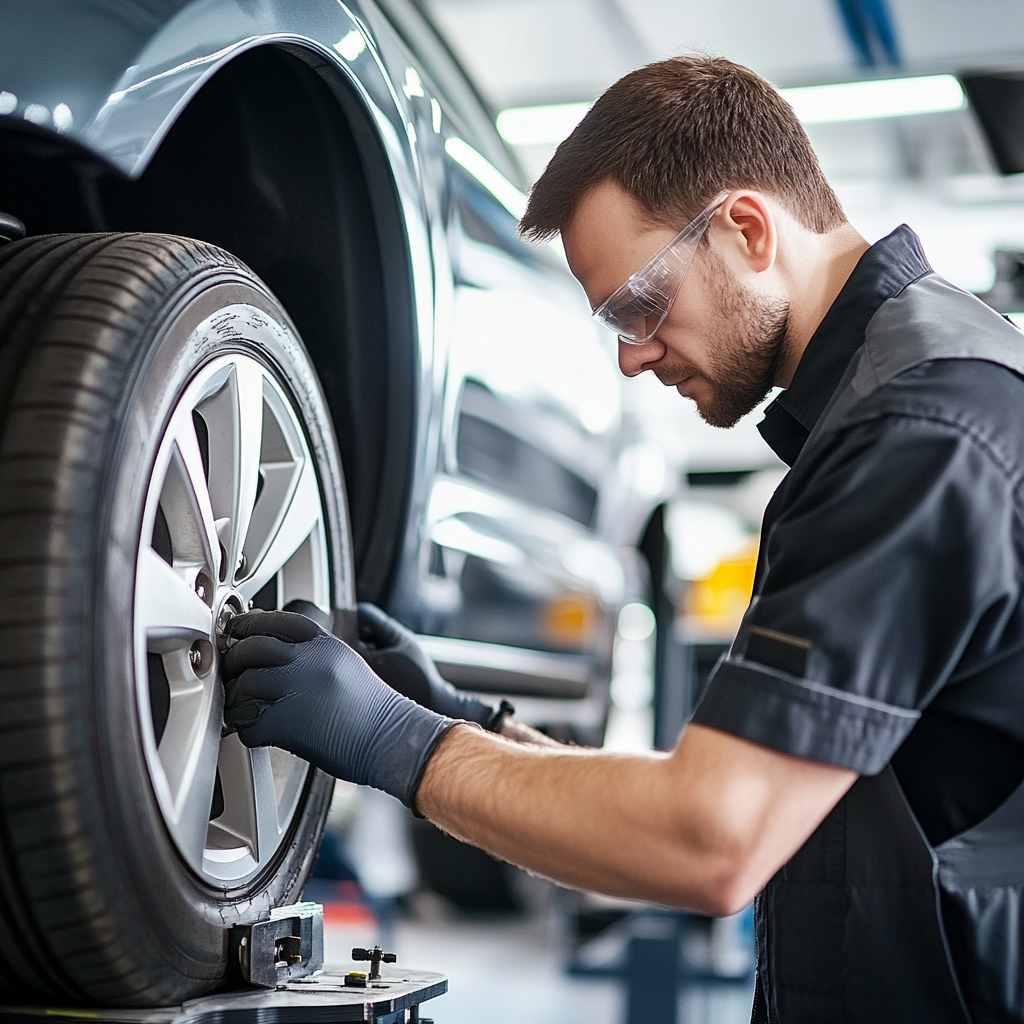
-
Lighten your Load
Lightening your vehicles is a simplest way to improve fuel efficiency. While your vehicle is bearing heavier load, that time the engine work harder to move your vehicle. It’s means your car’s engine have to burns more fuel. By lightening your car’s load you can reduce the strain on the engine and use less fuel to drive the same distance.
Now questions came, how you can reduce your car’s weight. Start by removing any unnecessary items from your car, like heavy tools, sports equipment and things you do not need for your trip. Even roof racks or cargo carriers can increase load by increasing drag effect. Which making your car less aerodynamic and forcing the engine to work harder.
From small cars to large trucks this lightening concept applies to all types of vehicles. Whether you are driving around the city or on the highway a lighter vehicle moves more efficiently. So, the nest time when you are planning to go for a trip, remember that travelling in light condition does not just make the drive easier it also increase fuel efficiency.

-
Smart Driving Techniques
Some techniques like smooth driving and gradual acceleration can significantly improve fuel efficiency in any car. When you press hard on the acceleration padel, carbonator sends rich mixture to your engine. Your car’s engine burns this fuel mixture to quickly gain speed. However, if you accelerate gradually your engine use less amount of fuel and operate more efficiently.
In addition to saving fuel, smart driving also reduces wear and tear on your engine and tires. Which extend the life of your vehicle. By adopting these simple habits, you can enjoy better fuel efficiency, a longer-lasting car, and a more relaxed driving experience.
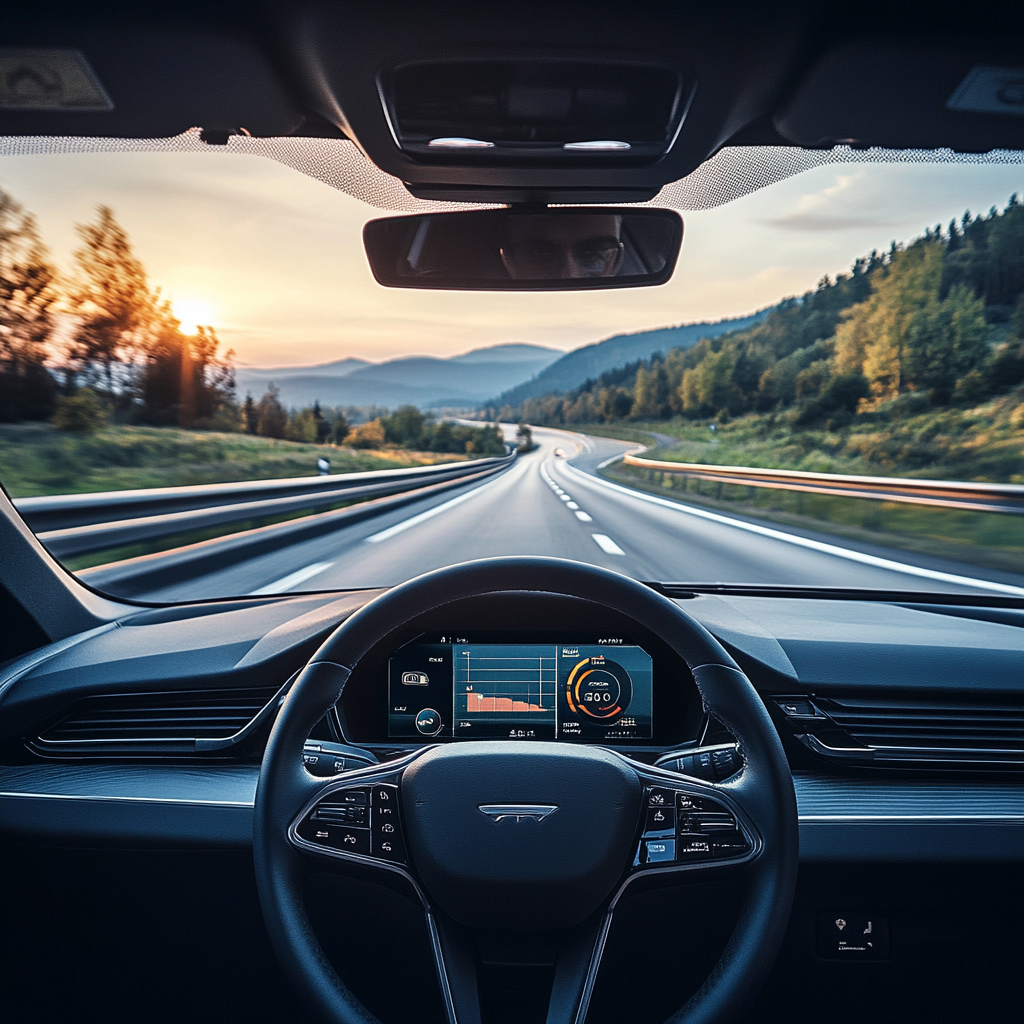
-
Efficient Use of Air Conditioning
Efficient uses of air conditioning (AC) can helps to save fuel and boost your car’s mileage. Running the AC puts extra load on the car’s engine. Which causes it to burns more fuel to power the system. There are some simple and easy ways to manage uses of AC smartly for better fuel efficiency.
First of all , try to use the AC only when necessary. Early morning times and cooler days roll down the windows for natural ventilation instead of AC. It also good for your health. If you do need the AC set the temperature in to a moderate level, rather then max cooling. It makes your car’s engine work more intensely. Once the car has cooled down, turn off the AC and use the fan to maintain airflow.
The ventilation method is good for when you are driving at lower speeds, especially in city traffic. However when you are at higher speeds, such as on highways, it’s better to use the AC than to open windows. Because open windows create aerodynamic drag. Which puts loads on your engine and that can reduce fuel efficiency.

-
Avoid Short Trips
Your car’s engine needs certain times to reach its optimal operating temperature. When you go for a short distances drive, your car’s engine doesn’t have enough time to reach its optimal operating temperature. A cold engine consume more fuel because it works intensely to warm up. As a result, you burn more fuel during short trips compared to longer ones. Because in longer trips engine stays warm and runs efficiently. Once the engine is warm, it burns fuel more steadily. Which reduce average fuel consumption in your engine. Instead of making multiple short trips throughout the day, combine those trips and try to go for one longer trip. This will also improve your time management and also reduce wear and tear on your engine. It’s an easy strategy that benefits both your wallet and your vehicle’s performance.
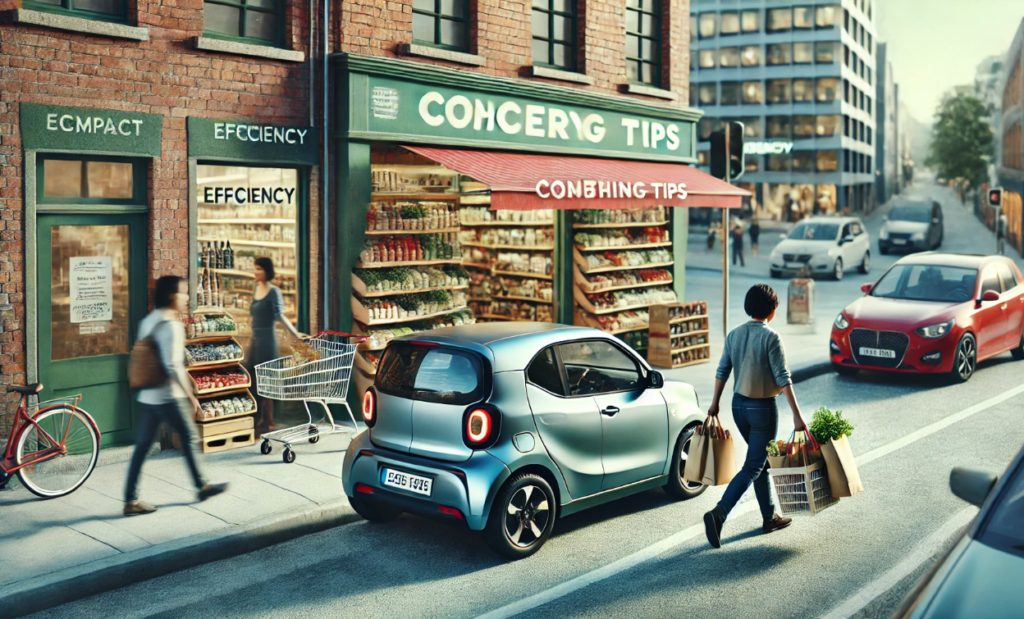
-
Monitor Your Driving Habits
Monitoring your driving habits can make a huge difference in maximising fuel efficiency. After tracking how much fuel your car consumes and by making adjustments to your driving style based on that report, you can improve your fuel efficiency. Once you start tracking your fuel usage, pay attention to how your driving habits affect it. For example if you observe a growth in fuel consumption, you may be driving aggressively. Like accelerating quickly, braking hard, or speeding. These behaviours use more fuel. To improve overall fuel efficiency practice smoother acceleration and gradual braking, and maintain a steady speed.
By monitoring your fuel uses and by making small adjustments to your driving habits, you can save fuel, reduce wear and tear on your vehicle’s engine, and even it help the environment. It’s a simple but effective way to drive smarter and more efficiently.
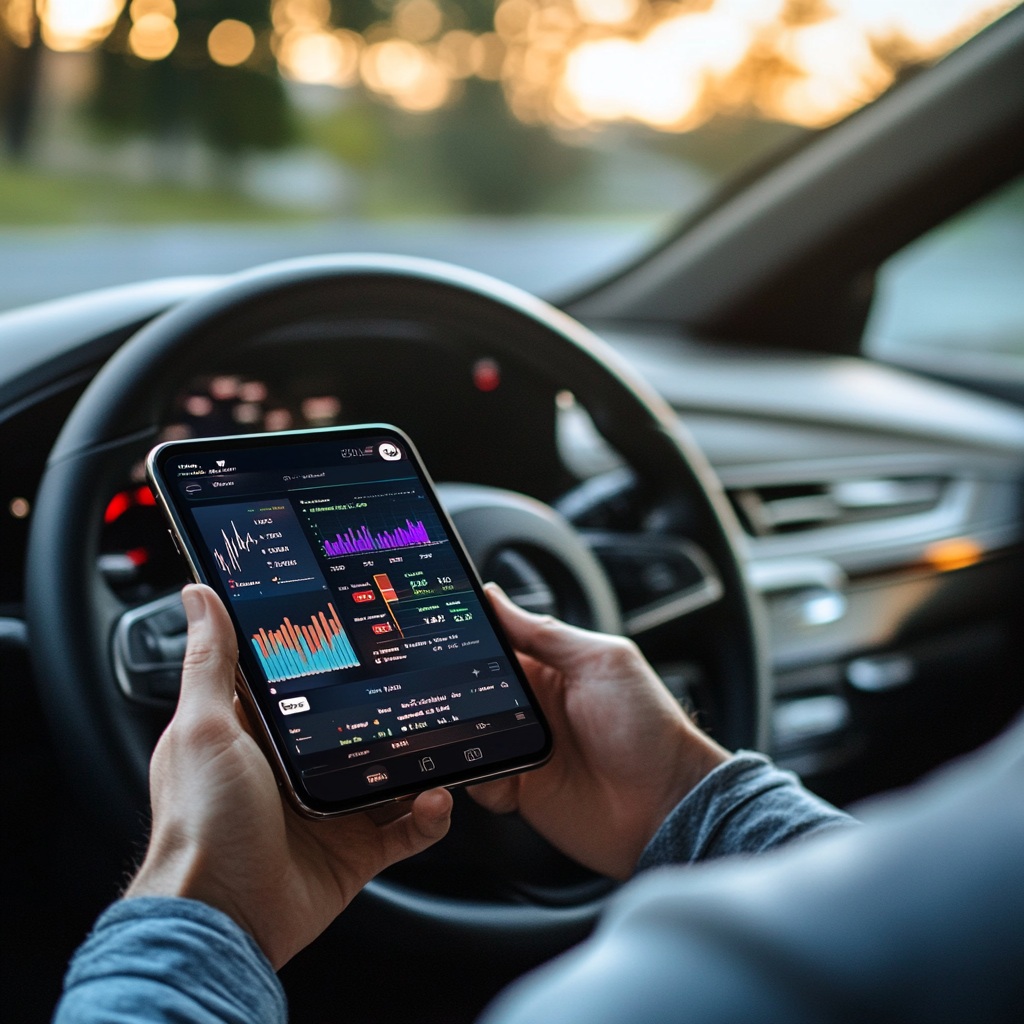
Conclusion
By following above discussed tips and by changing your driving habits, you can significantly improve fuel efficiency. It doesn’t matter what types of car you are using or driving. Keeping your engine tuned regularly ensures that it runs smoothly, reducing it’s fuel consumption. Proper tire alignment and lighter loads make your car more aerodynamic and puts less loads on the engine. By driving smoothly and accelerating gradually, you can avoid wasting fuel. Avoiding short trips and monitoring your driving habits can also make a big difference. These small changes in how you maintain and drive your car will not only save fuel but also reduce overall wear and tear, helping your car last longer and run more efficiently.
